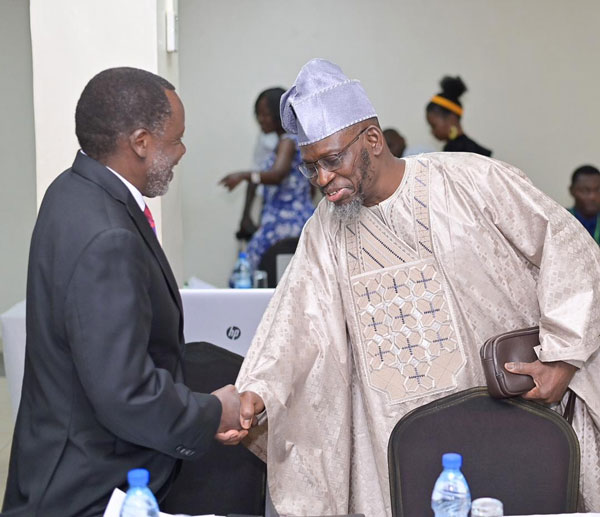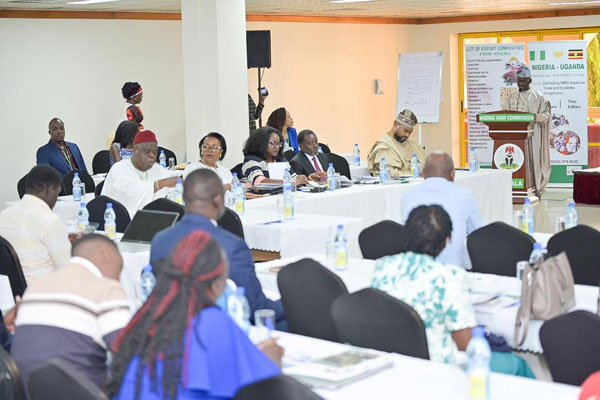
Kampala, Uganda | THE INDEPENDENT | The private sector in Uganda and in Nigeria is pushing for the easing of travel visa requirements between the two countries so as to improve trade through the easy movement of persons.
The two have also hailed the government of Nigeria for granting Uganda Airlines landing rights at Lagos and Abuja airports, saying it eases the difficulties that traders between the two countries go through.
Trade between the two countries is worth a paltry 4 million dollars per year and despite Uganda being five times smaller by population and with a GDP 10 times smaller, it accounts for more than half of the trade values.
Uganda’s exports to the West African country are mainly agricultural products like tobacco and hides and skins, as well as electronics, while it imports mainly float glass and textiles.

Ambassador Ismail Alatise, the Nigerian High Commissioner to Uganda said it is sad that despite the historical and political relations between the two countries, trade between them is among the lowest intercountry, a situation that he says should change during his tenure.
He told the first Uganda-Nigeria Business Forum in Kampala that there are opportunities in both countries that set the potential for the business communities to do a thriving trade.
The two countries have both a trade agreement and a Joint Permanent Commission, but Amb. Alatise says the trade agreement is as good as dying and needs to be revived as soon as possible.
Nigeria is the African largest economy with a GDP of 440 billion dollars and a population of almost 250 million, presenting enormous investment opportunities in everything, according to Alatise.
The Business Forum was organized by the Uganda National Chamber of Commerce and Industry, UNCCI, and its Nigerian counterpart, supported by the ministries of trade and the embassies in the two countries.
UNCCI President, Olive Kigongo, said that trade and economic relations between the two countries have been on the low because previously, the governments never showed interest to the effect that they were not taking part in business meetings.
Kigongo, however, says discussions of trade without implementing the recommendations are a waste of time.
She said instead that the two governments should focus on removing the barriers that hinder trade development, including travel visa restrictions, adding that Ugandans have a lot to benefit from not only the Nigerian market but also the way Nigerians do business.
Recently, Nigeria has launched a number of economic reforms under President Muhammadu Buhari, including a 10-year Nigeria Industrial Revolution Plan.
It involves establishing 109 agro-processing zones around the country, opening up warehousing facilities in different countries, and promoting value addition and export of 44 commodities from different sectors.
The head of the Nigerian delegation at the forum, Amb. Akinemi Bolaji, who is also Director of Economic, Trade, and Investments at the Foreign Affairs Ministry, said if Uganda’s business community takes Nigeria as a preferred trade nation, they will have access to 16 countries in the region that have free trade with the country.
Nelson Ocheger, Uganda’s envoy to Nigeria and the other 15 Economic Community of West African Countries and Equatorial Guinea said he has been fighting for space for Uganda Airlines in Nigeria and that the landing rights will go a long way in improving trade between the two countries.
Stressing the need for connectivity, he said transportation between the two countries is only possible by either air or sea, but both are very expensive, with the sea option necessitating routing the goods through Europe and the United Arab Republic to East Africa.
Ocheger defended his role of promoting investment between the two countries, saying a number of agreements between the governments and the private sectors have been signed, but not implemented by those responsible.
****
URN
 The Independent Uganda: You get the Truth we Pay the Price
The Independent Uganda: You get the Truth we Pay the Price


